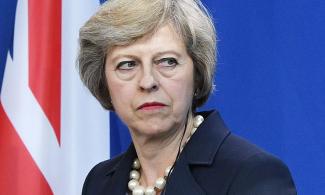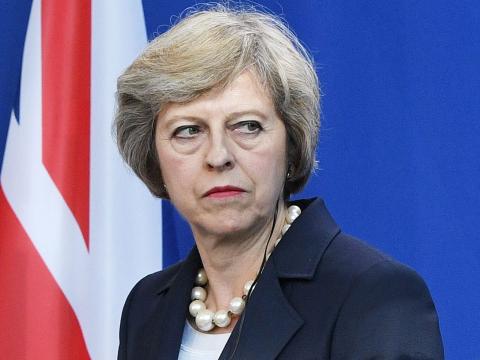
If the UK, which obviously still treats the African continent as its footstool, sees nothing wrong in aiming a dummy missile at us, there should be at least one leader apart from Robert Mugabe with enough mojo left to ask Whitehall to point its payload elsewhere.
In a week when Africa riveted on former President Yahya Jammeh’s tantrums, an event that could have shaken the continent to its core slipped below the radar.
Or maybe we didn’t think it was sufficiently important. It emerged early in the week that the British Prime Minister, Theresa May, had knowingly concealed information about a failed missile test when she appeared in Parliament to ask for 40 billion pounds to replace the Trident, the UK’s flagship missile defence system.
The Guardian UK, which published the story, mentioned “West Africa,” the test target, by accident in its more than 800-word copy.
Opposition parliamentarians were not necessarily mad that the prime minister had taken them for a ride, although that was part of the problem. They couldn’t understand how this secret had been concealed from them since June and why they had to find out through the backdoor that the missile, which was tested in Florida, US, backfired.
For Africa, the problem was different. If the UK had actually fired the missile at West Africa, it could have landed in Accra, Abuja or Abidjan.
It’s convenient to argue that the missile was unarmed, that it carried only a dummy. But if UK parliamentarians can be outraged by the concealment and the potentially “catastrophic consequences” of the test, I’m bereft that not a whimper of objection has come from Africa, the target.
It was not even reported or mentioned in passing online or offline.
Compare the deafening silence in Africa to the huffing and puffing in Washington and London following any real or rumoured attempt by the North Korean leader, Kim Jong-un, to test his missiles, which are potentially far less deadly or dependable.
The unarmed UK missile that backfired in June has a range of 12,000km, which means it could land in any West African country from Florida where it was fired. And with a nuclear payload of 1900 kilotons, which is nearly 95 times the destructive capacity of the nuclear bomb dropped on Hiroshima and Nagasaki, the Trident missile could leave swathes of the region, including Nigeria, in ruins.
But the continent’s leaders were too preoccupied to notice. Jammeh was busy negotiating a safe passage for his men and asking for an oil block in Nigeria as condition for stepping down; President Muhammadu Buhari was away on a medical holiday abroad while the military authorities were hunting down journalists over spurious charges of criminal libel. And in South Africa, after surviving an internal rebellion, President Jacob Zuma was busy devising a system for ANC members to spy on one another.
Who is looking after the shop?
Of course, we can’t even complain that Africa is not being treated with respect when its leaders are absent.
And it’s not the first time in a decade. Did former President George Bush consult with Africa before setting up AFRICOM in 2007? Or did France discuss with the AU before deploying 3,000 troops to secure its interests in the region one year later?
The point is that contempt tends to feed on itself, breeding even more contempt. If the UK, which obviously still treats the continent as its footstool, sees nothing wrong in aiming a dummy missile at us, there should be at least one leader apart from Robert Mugabe with enough mojo left to ask Whitehall to point its payload elsewhere.
"What’s the point?" some would ask. Aren’t our leaders committing more devastation than the 12 nuclear warheads of the Trident combined?
See what the continent went through to get rid of Jammeh; consider the nonsense still going on in Teodoro Obiang Nguema Mbasogo’s Equatorial Guinea and Mugabe’s Zimbabwe; the fading hopes in South Africa; the rising crisis of expectation in Nigeria, and the millions of people across the continent broken and bruised by years of corruption and incompetent leadership.
Could the Trident do worse, really?
That is an unfair question. It paints the continent with the same brush of prejudice, completely ignoring the energy and innovative spirit of the vast populations of the young and the stories from bright spots like Tanzania, Ethiopia, Kenya and Rwanda.
Let’s be clear. We may have our problems – compounded by bad leaders and complicit followers – but nothing justifies turning the continent into a playground for nukes, with or without a payload.
The continent’s silence was shameful and a quiet approval to the world to do even worse.
We have endured toxic waste, blood diamonds, poaching and cheap substandard goods, not to mention apartheid, slavery and racism, from countries that claim to love the continent more than it loves itself.
To let the UK – or any other country – make the continent the new testing field for missiles is a luxury we cannot afford. It has to be said loud and clear: the backfired nuke test in Florida should be the last.
Ishiekwene is the MD/Editor-In-Chief of The Interview and member of the board of the Paris-based Global Editors Network.
